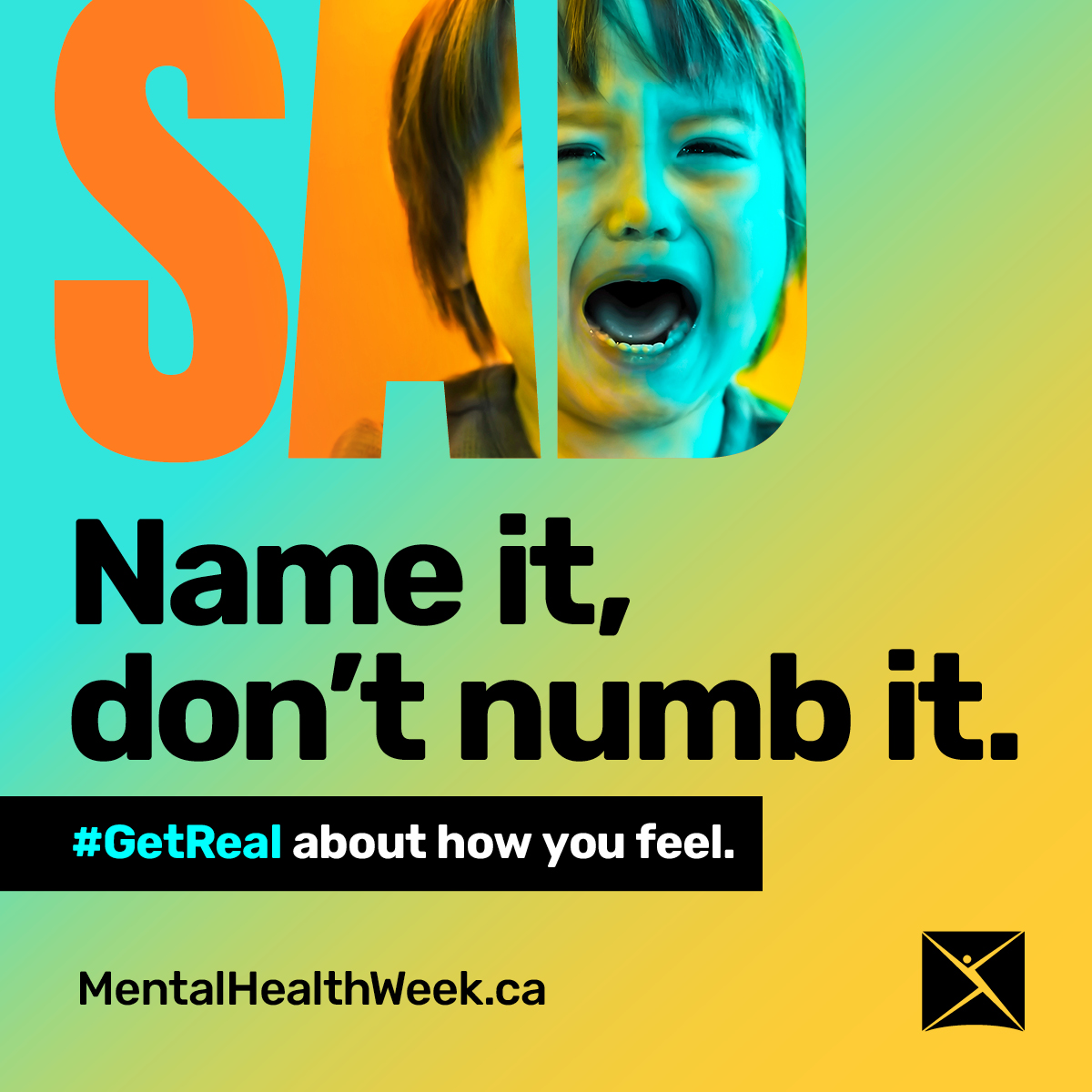It is Mental Health Week! This is a Canadian tradition, held annually on the first week of May to celebrate, protect, and promote mental health. This year’s theme is understanding our emotions.
Mental health and COVID-19
The global pandemic has caused people around the world to experience more complex and challenging emotions. Researchers have found that more people are turning to alcohol and other substances to cope with feelings of stress and boredom. Approximately 40% of Canadians report that their mental health has declined since the start of the pandemic. People with FASD, who already experience a disproportionate level of mental health challenges, may be at risk for additional challenges. Caregivers of people with FASD, who reported high levels of stress even before the pandemic, are facing high-stress situations daily.
Our body is tied closely to our emotions and we see physiological responses when we experience an emotional event. Our voices, muscle tone, and facial expressions may change. We also may see changes to our heart rate, respiratory rate, digestion, sweat, and hormone levels, as emotional events can trigger both our autonomic nervous system and our endocrine system.
Naming our emotions
When we name our emotions – either by saying them out loud or writing them down – it can make us feel better. This is true even when we’re dealing with uncomfortable emotions like fear or anger. Putting our feelings into words is known as affect labelling, which is a form of implicit emotion regulation.
 Researchers have found that when we label our emotions, it can change the reaction of both our brain and body. Affect labelling reduces the activity in the part of our brain that responds to fear and activates the part of our brain that is thought to be involved in processing emotions and regulating behaviour. Researchers of another study found that for people who talked about their feelings before giving a speech, this act helped them to reduce their body’s stress response and feelings of anxiety.
Researchers have found that when we label our emotions, it can change the reaction of both our brain and body. Affect labelling reduces the activity in the part of our brain that responds to fear and activates the part of our brain that is thought to be involved in processing emotions and regulating behaviour. Researchers of another study found that for people who talked about their feelings before giving a speech, this act helped them to reduce their body’s stress response and feelings of anxiety.
Researchers have also shown that when we express so-called “negative” emotions to others, we also improve our relationships. Expressing our emotions builds trust, deepens intimacy, and increases the likelihood that the other person will offer you help and support.
Emotions and FASD
However, people with FASD often struggle to understand and manage their emotions. They may need other people to help them recognize what they are feeling and teach them new words and strategies to express their emotions. Caregivers and providers can help people with FASD teach people how understand feelings by assigning words to something concrete. For example, they might say, “I can see that your fists are clenched, and your face is red. This tells me that you’re feeling angry.”
Taking the “good with the bad”
We often categorize our emotions into the positive and the negative. Emotions like happiness and excitement often fall into c the positive category, while emotions like anxiety, fear, and sadness fall into the negative category. But emotions aren’t inherently “good” or “bad”. Good mental health doesn’t mean that you never feel sad or scared. Our health is based on a complex relationship between so-called “positive” and “negative” emotions. We reach good physical health when we feel “the good with the bad”.
c the positive category, while emotions like anxiety, fear, and sadness fall into the negative category. But emotions aren’t inherently “good” or “bad”. Good mental health doesn’t mean that you never feel sad or scared. Our health is based on a complex relationship between so-called “positive” and “negative” emotions. We reach good physical health when we feel “the good with the bad”.
Naming our emotions can help us understand and process them and can even help us feel better. However, if you are experiencing emotions that are overwhelming or that are persistent in your life, you should seek help from a mental health professional.
Learn more about Mental Health Week by visiting the Canadian Mental Health Association webpage.

